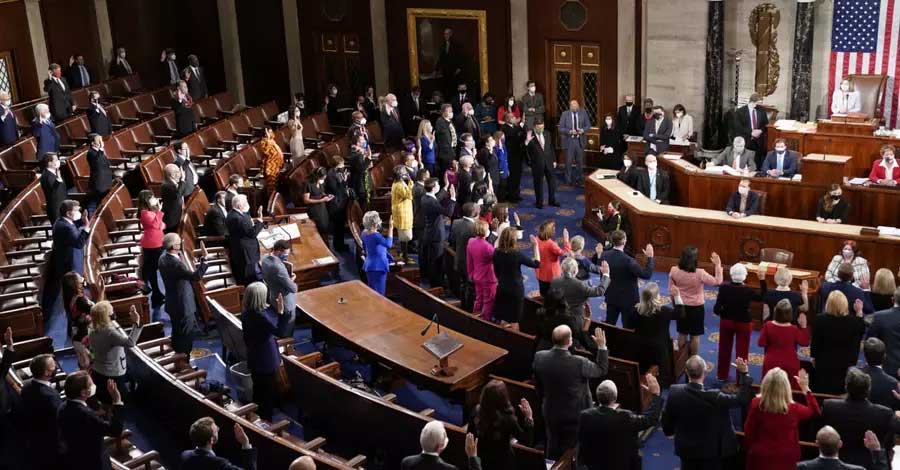Congress Faces a Backlog of Legislation
As 2021 churns toward its end, Congress has an ever-growing list of priorities that need to be passed by the end of the year. While challenges loom at every corner, some recent actions show that resolution is possible.
First, Congress made some notable progress this week as they were able to avert a government shutdown by passing a stopgap bill which will extend the government’s funding through February. President Biden signed the bill into law on December 3. Less certain are the chances of a debt default which could see programs like Medicare and Social Security defunded to help the government stay afloat. The future is unclear as a deadline looms less than two weeks away. Senate Majority Leader Chuck Schumer of New York and Senate Minority Leader Mitch McConnell of Kentucky have been in talks on the matter and have both signaled cautious optimism that a default will be avoided.
The National Defense Authorization Act, or the NDAA, has been subject to an unusual amount of partisan haggling this year, especially given that it is almost always passed with the support of almost all members of Congress, spare a handful of stringently anti-war members, like Senator Bernie Sanders of Vermont. This year, however, Republicans like Senator Marco Rubio have held up the bill for a series of amendment votes on forced labor matters in China. However, an amendment vote is also expected for the repeal of the Authorization of the Use of Military Force for Iraq, meaning that if it passes, the Iraq war will officially end. Leader Schumer aims to get the bill passed by next week.
The House of Representatives is currently deliberating a bill known as the U.S. Innovation and Competition act: one of leader Schumer’s most prized pieces of legislation. The bill seeks to halt China’s global economic rise and has already passed the Senate bipartisanly. Schumer and Speaker of the House Nancy Pelosi reached an agreement on the bill last month, paving the way for its passage soon. The bill includes funding for American manufactured computer chips, which have been subject to shortages this year.
Lastly, the Senate will soon consider the Build Back Better act, President Biden’s marquee proposal on healthcare, climate initiatives, childcare, education, immigration and racial equity. The bill is almost ready for passage, but still faces challenges from Moderate Senator Joe Manchin of West Virginia, though he has indicated that he wants some form of the bill to pass. Leader Schumer has indicated that he wants the bill to pass the chamber by Christmas Day. Other than Manchin’s hesitation, which includes resistance to some coal-unfriendly climate measures, the Senate parliamentarian, Elizabeth Macdonough has to evaluate whether all measures in the bill are in accordance with the rules of the Senate. One of the measures under consideration is the immigration proposal, currently being deliberated by the parliamentarian and her team. It should be noted that some senators have also raised concerns about one of the tax proposals for the bill, known as the SALT tax deduction, which will most benefit the states of New York, New Jersey and California, though alternatives have been offered by Sanders.
As Congress faces one of their most busy months of the year, the shadow of next year’s midterm elections looms large and is a big incentive for fast action. It will soon be seen how much work Congress punts to next year or if they are able to pull off some legislative mastery and finish everything above in the next few weeks.

Abhishek is a deeply engaged member of the Albuquerque Academy community, part of several government and politics-focused clubs and activities. For the...







